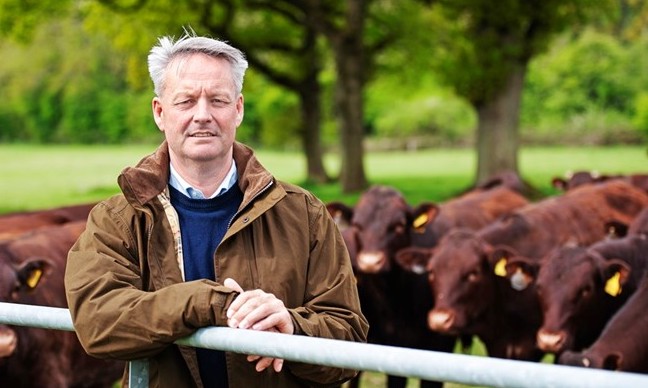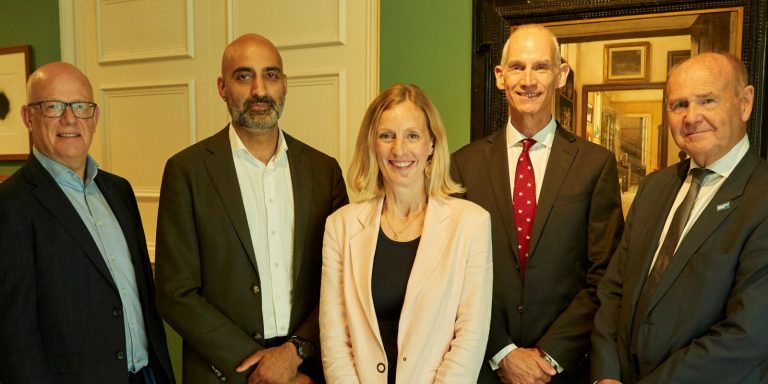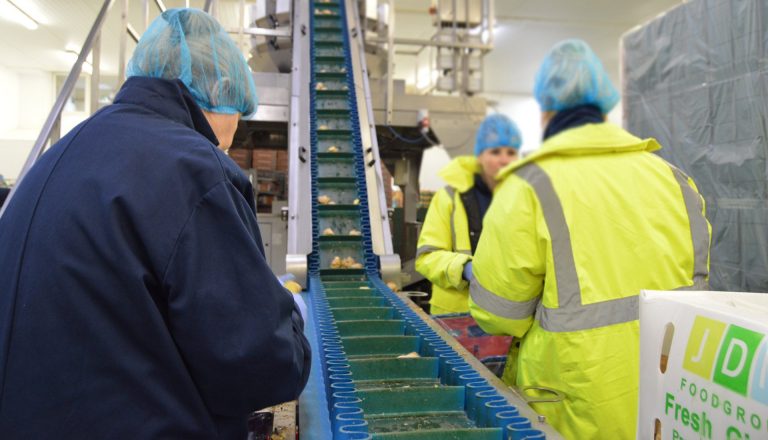Criminal solicitors acquired by East Yorkshire firm
Cost of rural crime has soared by £9m a year, says insurance company
David Lloyd Leisure fined £2.55m after drowning at venue in Leeds
Greater Lincolnshire gets regional ‘defence and security’ status
Greater Lincolnshire is now recognised by the Government as the third of the nation’s new Regional Defence and Security Clusters.
Sentiment stable and output falls while SME manufacturers’ investment plans scaled back
Yorkshire food and drink businesses offered interest-free 12-month loan
- Registered in the UK
- Owner-operated
- Engaged in Food and/or Drink industry
- Have a consumer-branded product
- Annual turnover up to £4 million
- Present a compelling business plan with ambitious growth targets
- Be in operation for five years or less since incorporation
- Provide evidence of consumer demand for their brand
- Eligible businesses can receive a secured interest-free loan for a 12-month period, with a maximum value of £100,000, upon successful completion of the application (including the business plan). The ultimate goal is to convert the loan into an equity stake when it matures. For investment purposes, the company’s valuation will be based on 5 times EBIT (Earnings Before Interest and Taxes).
- Throughout the loan period, borrowers will benefit from professional advice from the lender to help them achieve their company goals.
- Monthly meetings between the lender and the borrower will be held to review company performance, plans, and progress.
- At the 6-month mark, the lender will inform the borrower of their intention to either call in the loan upon maturity or convert it into equity at the end of the 12-month term, based on a valuation of 5 times EBIT.
- Successful conversion of the loan to equity will grant the investor the right to appoint a Director to the invested business.
- Moreover, the successful conversion opens the pathway for future equity investments in the business, if desired by both parties, on the 2nd, 3rd, 4th, and 5th anniversaries of the original loan. The company’s valuation for these subsequent investments will also be based on 5 times EBIT on each anniversary.
Cheers! Pub beer price duty now 11p a pint lower than supermarkets
- all products taxed in line with alcohol by volume (ABV) strength, rather than different duty structures for different drinks
- fewer main duty rates, from 15 to 6, to make it easier for businesses to grow and operate
- there will be lower taxes on lower alcohol products – those below 3.5% alcohol by volume (ABV) in strength – a huge growth area in the drinks industry
- all drinks above 8.5% ABV will pay the same rate regardless of product type
Government changes CE marking rules to ease business burden
Health and safety specialist receives substantial investment
Creative agency takes space at Leeds’ Elbow Rooms
Business confidence falls in Yorkshire
Nuclear experts welcome report calling for clear Government strategy
- A clearer role for Great British Nuclear – beyond the current SMR competition.
- Establishing the right mix of technologies – clarity over what proportion should be met by gigawatt-scale plants, and how much by SMRs and AMRs.
- Financing of new nuclear – including the cost of the risk transfer from the Regulatory Asset Base model.
- Small modular reactors – whether technologies should be from a single supplier or multiple suppliers; where SMRs should be; and what financial model would be used.
- Skills – the current nuclear workforce of over 65,000 people will need to more than double, requiring between 75,000 and 150,000 new recruits. This needs coordinated actions by the whole sector.
- Decommissioning – a clear understanding of the waste consequences of new nuclear technologies, how it will be dealt with, and at what cost.
- Nuclear fusion – the UK needs to demonstrate a long-term approach, giving confidence and stability to investors and international partners.
Yorkshire Energy Park puts £20,000 into communities in Holderness
Demand for skilled self-employed labour stay high in face of housebuilding slowdown
Lincolnshire-based food group’s merger with American firm will create new parent company
Training provider backs digital marketing event with sponsorship
Lincolnshire firms share in £8m of ERDF grants
Healing pair get suspended sentences after discovery of significant haul of illicit cigarettes
Knight Frank promotes six in Leeds
Goole grants of up to £50,000 are designed to benefit the town’s economy
Opportunity Goole, one of eight projects that make up the Goole Town Deal regeneration programme, has launched a grant funding scheme that both individuals and organisations can apply to.
Grants of up to £50,000 are now available for projects designed to enhance the local economy in some way, and that they wouldn’t have been able to access the funding elsewhere. The grant scheme will be open to organisations initially and will then begin to accept applications from individuals soon afterwards. Opportunity Goole Project Manager Dawn Redfern said: “The eligibility criteria is deliberately very broad and the grant scheme is open to anyone over the age of 16 in the Goole area. The main requirement is that the grants should be used to boost the local economy in some way. So, for example, an organisation may want to apply for grant funding to pay for some training for its workforce. “Meanwhile, an individual could apply for funding towards transport costs to help them secure employment or give them access to training. However, if applicants can access the funding they need elsewhere, we’ll signpost them to that instead. The idea is that the Opportunity Goole grant scheme provides financial support that people can’t find elsewhere.” Phil Jones, Chairman of the Goole Town Deal Board, welcomed the launch of the Opportunity Goole grant scheme, adding: “Since its launch earlier this year, Opportunity Goole has already delivered some really positive outcomes for both individuals and employers. The launch of this new grant scheme is a really positive step because it has been designed to fill a gap in existing provision so the criteria is very broad and flexible. Even if you’re unsure whether you’d be eligible to apply, it’s well worth emailing the team or popping in to Goole Library to see them and talk your ideas through.” Members of the Opportunity Goole team are also be able to help and advise applicants with their grant funding applications. Anyone who would like to apply or find out more is asked to email the team at: opportunity.goole@eastriding.gov.uk. Members of the Opportunity Goole team are based within Goole Library on Carlisle Street in the town centre and both local residents and businesses/employers looking for free support are welcome to drop in and see them or can email in advance to pre-book an appointment. Billed as a ‘one-stop shop’, Opportunity Goole provides easy access to information about local job opportunities, training provision, business support and more to anyone over the age of 16 years, regardless of whether they’re employed, unemployed or retired. The team can also help people to access information about Goole Town Deal and workforce development, helping individuals to gain the knowledge and skills they need to secure employment and ensuring that employers can recruit local people with the skillset that they’re looking for. For more information about Opportunity Goole and the other projects funded by Goole Town Deal, visit www.gooletowndeal.co.uk.




















